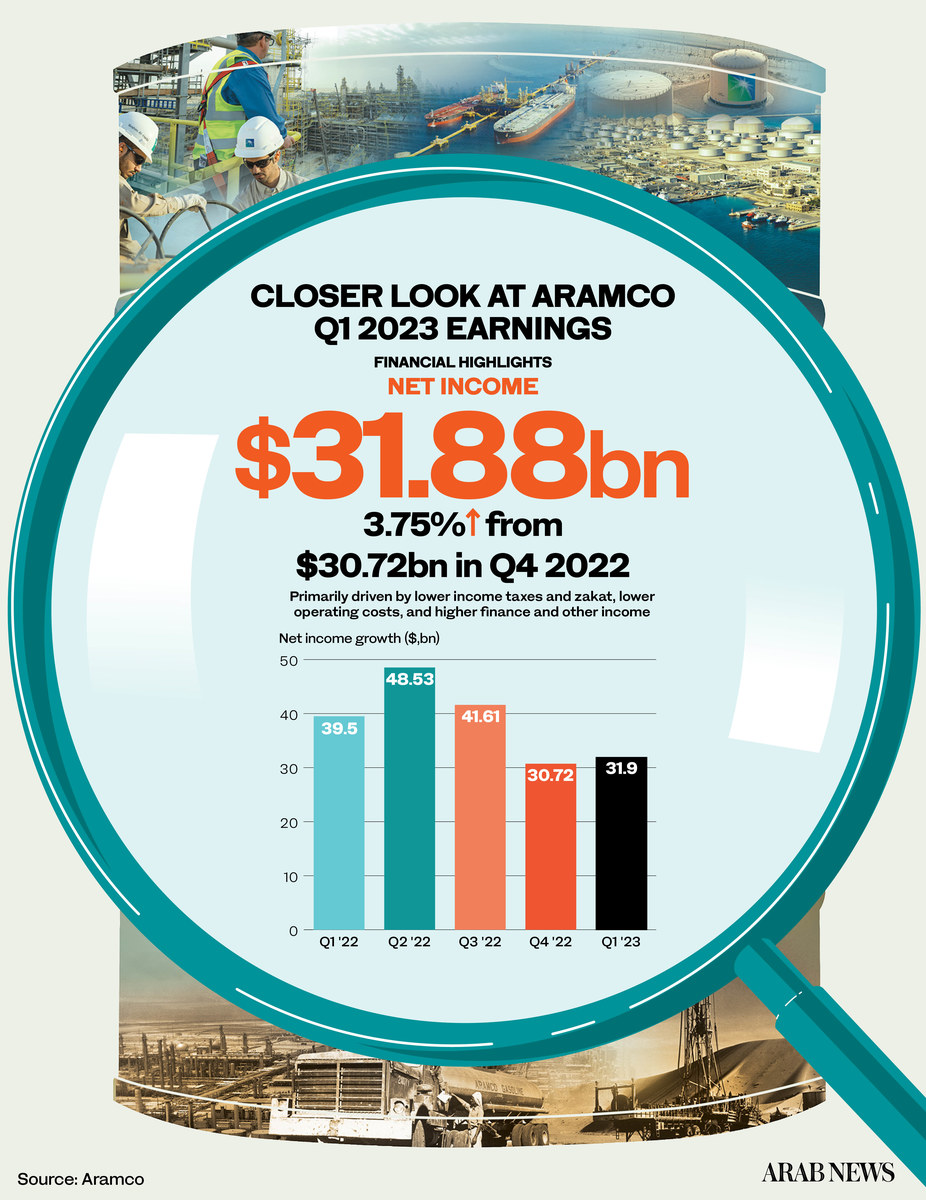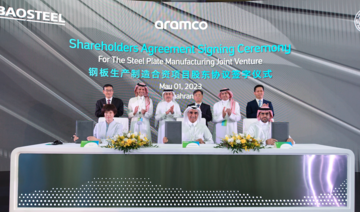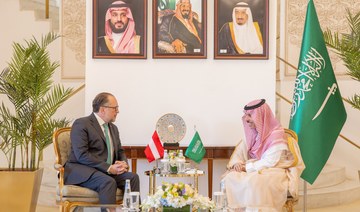RIYADH: Saudi Arabian Oil Co. reported a net profit of SR119.54 billion ($31.88 billion) in the first quarter of 2023, up 3.75 percent from SR115.22 billion recorded in the previous quarter.
In a statement to Tadawul, Saudi Aramco said that the rise in quarter-on-quarter net profit was driven by lower income taxes and zakat, reduced operating costs, and higher finance and other income.
“The results reflect Aramco’s continued high reliability, focus on cost and our ability to react to market conditions as we generate strong cash flows and further strengthen the balance sheet,” said Amin Nasser, CEO of Saudi Aramco.
The energy giant’s net profit for the first quarter is more than three-quarters of the $40.5 billion in combined first-quarter profits reported by five oil majors: BP and Shell in Britain, ExxonMobil and Chevron in the US, and TotalEnergies in France.
Aramco’s net profit, however, dipped 19.25 percent year-on-year in the first quarter, as the company clocked a profit of SR148.03 billion in the same quarter of 2022.
“Global crude oil prices declined in the first quarter of 2023 mainly driven by macroeconomic events contributing to market volatility. Aramco believes it is well-positioned to withstand fluctuating commodity prices through its low-cost upstream production and strategically integrated downstream operations,” said the company in a statement.

Aramco had reported profits totalling SR603.77 billion in 2022, allowing Saudi Arabia to notch up its first annual budget surplus in nearly a decade. Those earnings were supported by rising energy prices after Russia launched its war on Ukraine in February 2022, with sanctions limiting the sale of Moscow’s oil and natural gas in Western markets.
Nasser further noted that oil and gas supplies are critical components as the world moves toward a sustainable future. He asserted that Aramco is working hard to develop green energy solutions that will smooth this transition.
“Our intention is to continue to be a reliable energy supplier with the ability to provide more sustainable energy solutions, supporting efforts to achieve an orderly energy transition. By working to further reduce the carbon footprint of our operations and adding new lower-carbon energy options to our portfolio, I am confident about the contributions we will make,” added Nasser.
The CEO further noted that Aramco has reached deals to expand its downstream business abroad in the first quarter, including investments in China and completing a $2.76 billion acquisition of Valvoline Inc’s products business.
“Our growth strategy remains on track and we made significant progress on the strategic expansion of our downstream business during the quarter, announcing a key acquisition in the US as well as important investments and partnerships in China and South Korea,” added Nasser.
He further noted that the downstream strategy is gaining momentum, and Aramco is leveraging cutting-edge technologies to increase its liquids-to-chemicals capacity and meet anticipated demand for petrochemical products.
In the first quarter of 2023, Aramco continued to demonstrate its track record of reliable operations with total hydrocarbon production of 12.8 million barrels per day, the statement added.
The statement also noted that crude oil utilized by Aramco’s downstream operations accounted for 45 percent of the company’s crude oil production.
Meanwhile, Aramco is also planning to introduce a mechanism for performance-linked dividends on a quarterly basis in addition to the base dividends it currently distributes.
According to the statement, Aramco intends to target these to be in the amount of 50 percent to 70 percent of the group’s annual free cash flow, net of the base dividend and other amounts including external investments, to be determined with the annual results.
The statement added that the dividend of $19.5 billion in the first quarter of 2023 will be paid in the second quarter.
Increasing dividends is expected to boost revenues for the Saudi Arabian as it owns more than 90 percent of Saudi Aramco shares.
Shareholders of Aramco also approved the board’s recommendation to increase the company’s capital to SR90 billion from SR70 billion.
According to the Tadawul statement, the capital increase will be done through the capitalization of SR15 billion from retained earnings. It added that the energy giant would distribute one bonus share for every 10 shares held.
Earlier in April, Saudi Arabia’s Crown Prince Mohammed bin Salman announced that a 4 percent stake in Saudi Aramco has been transferred to Sanabil Investments, the investment arm of the Kingdom’s sovereign wealth fund.
He revealed that the state remains Aramco’s biggest shareholder, owning 90.18 percent stakes in the firm, and also noted that this transfer of stakes is a part of Saudi Arabia’s long-term initiatives to boost and diversify the national economy and expand investment opportunities in line with Saudi Vision 2030.
























